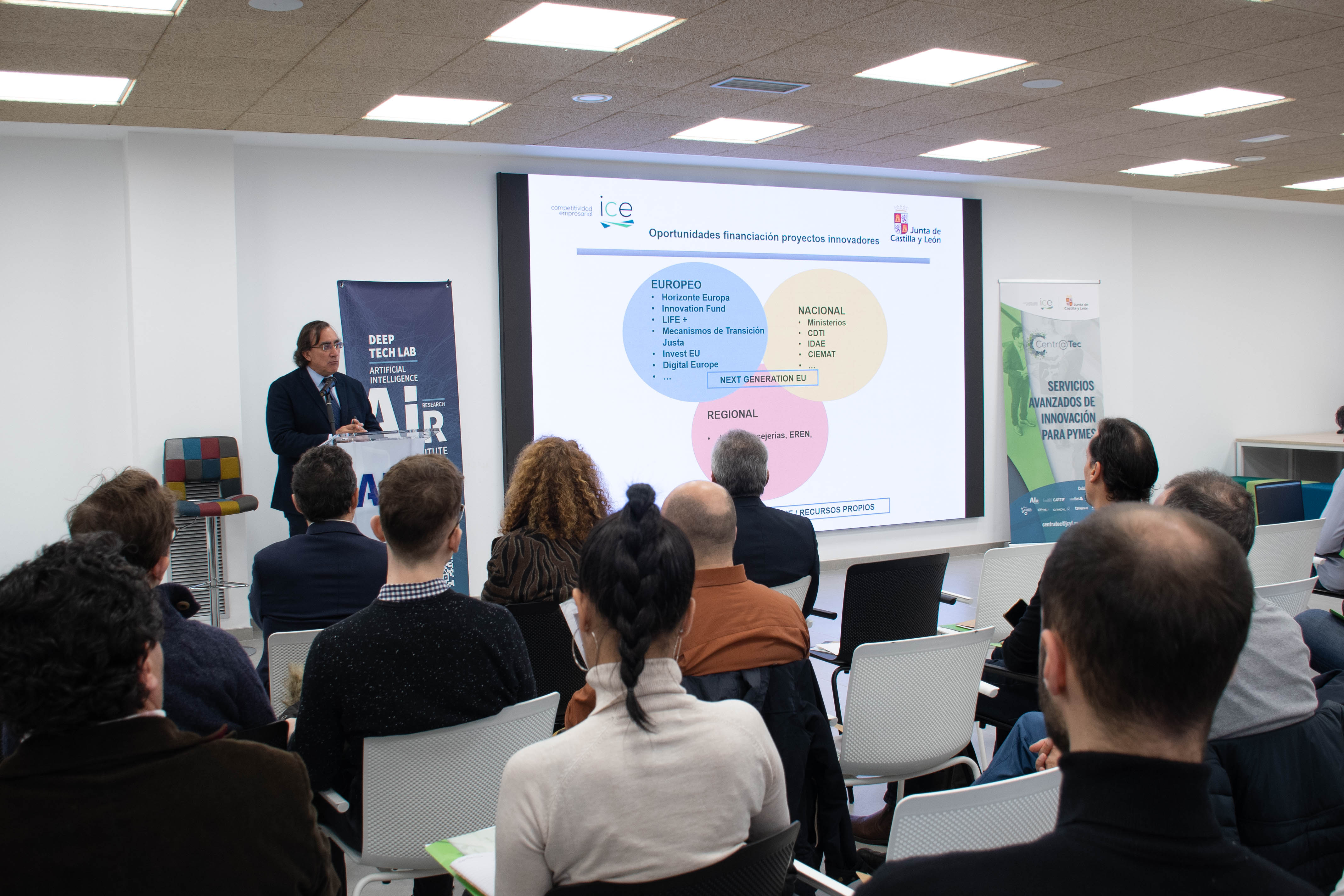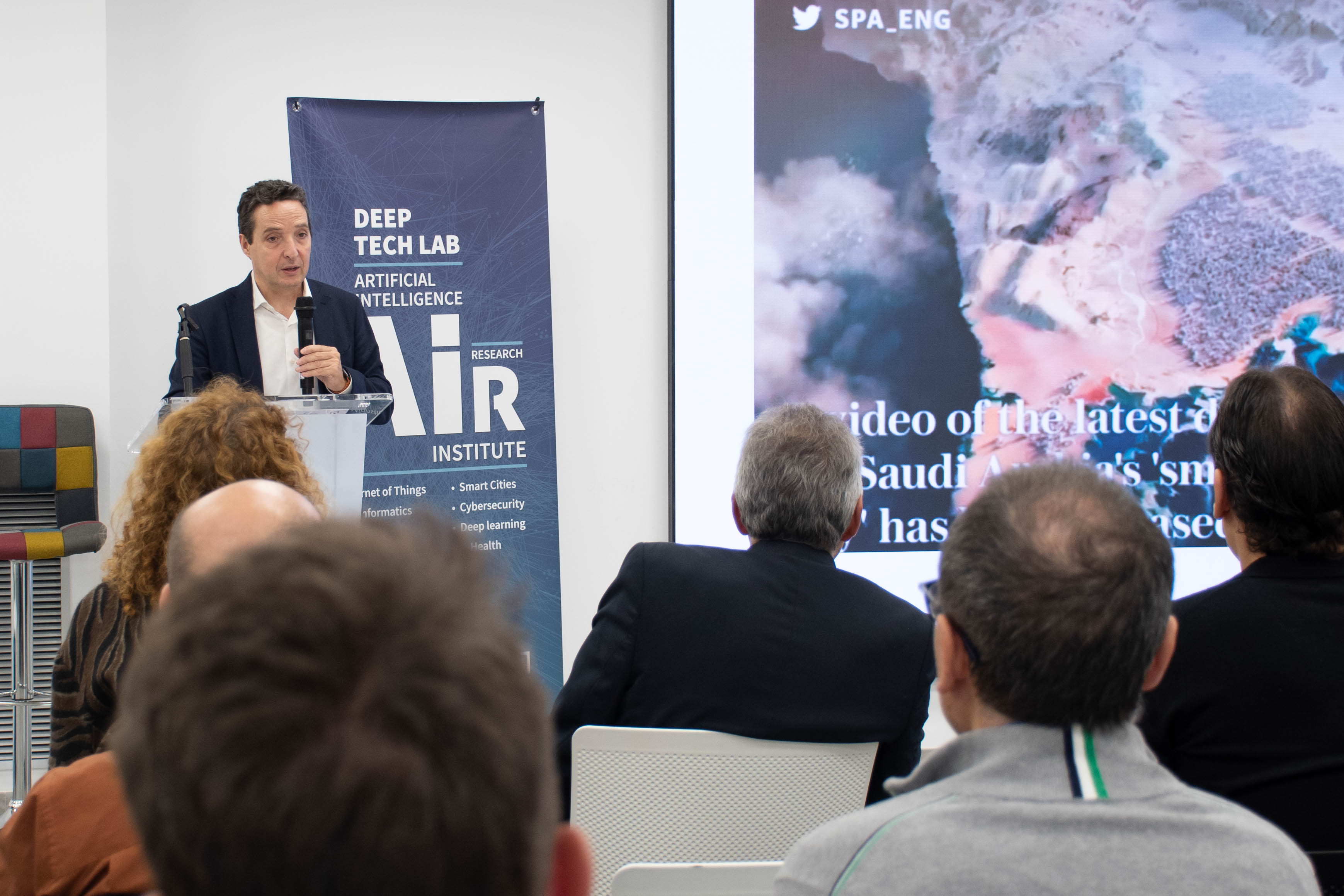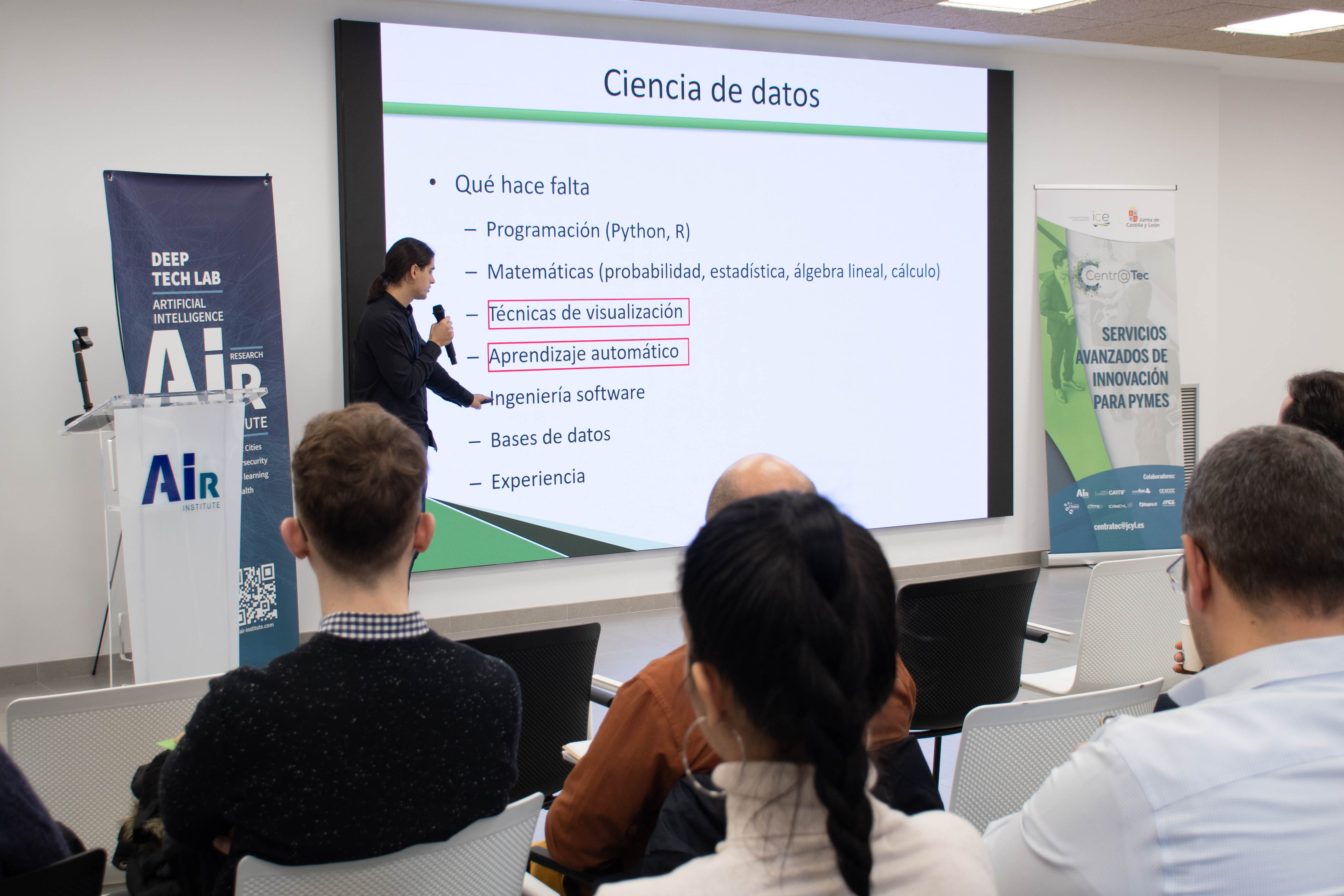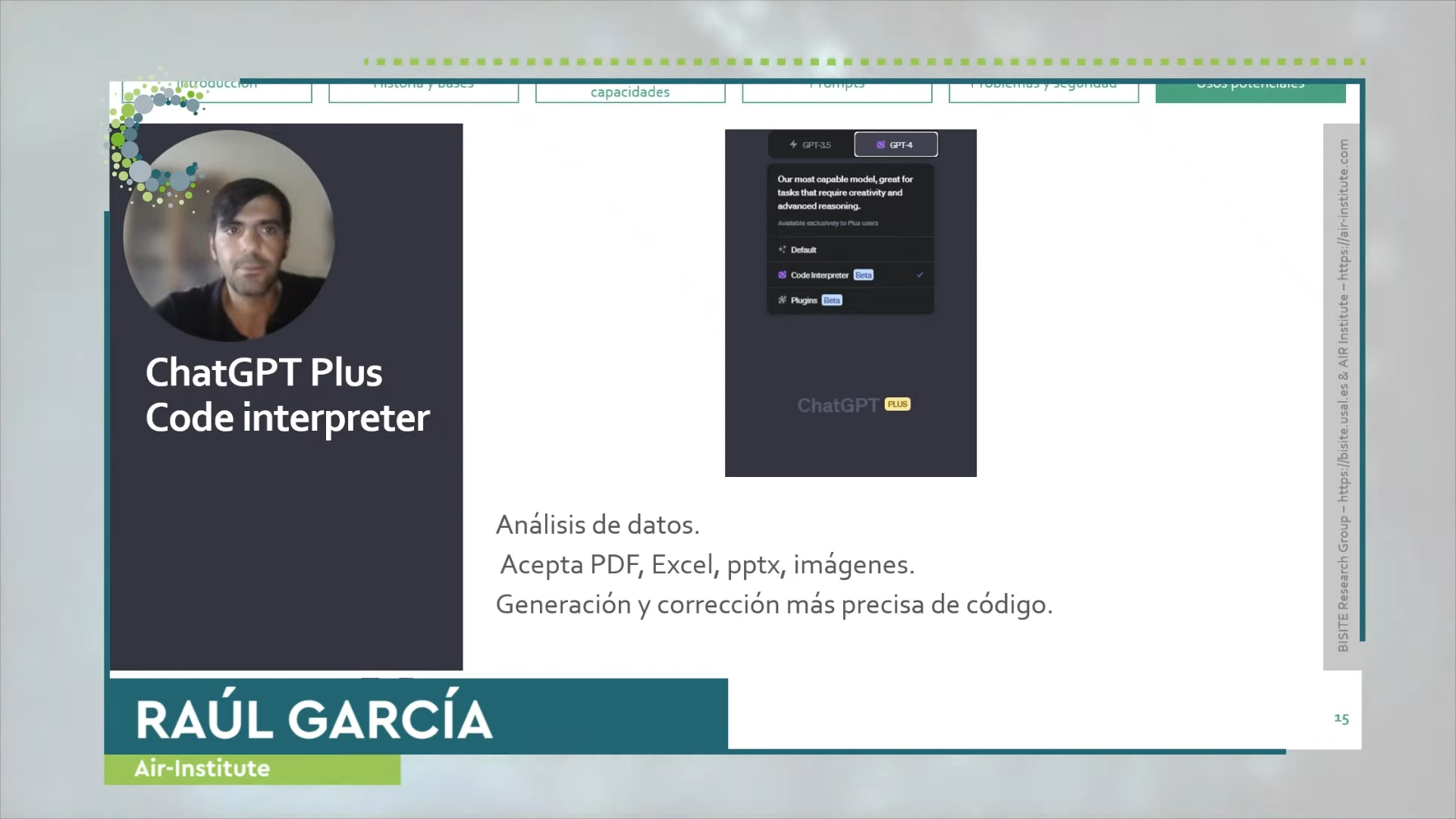AIR Institute and ICE train companies in generative artificial intelligence
The Institute for Business Competitiveness of Castilla y León (ICE) in collaboration with AIR Institute has organised a conference on "Technological training for startups and SMEs: Generative Artificial Intelligence", an activity framed within the Centr@tec Programme that aimed to show entrepreneurs, mainly startups and SMEs, how they can transform their businesses through the incorporation and optimal development of this technology.
Nearly forty companies gathered at the IoT and Artificial Intelligence Centre for this activity, which highlighted the funding opportunities that companies can access. José Francisco Diego, Territorial Director of ICE in Salamanca, has stressed how through the Centr@tec Programme they intend to reach companies and help them carry out their digital transformation by making diagnoses of their digital status, sustainability, and industry 4.0 analysis... "We are pleased to provide advice and we are delighted for you to be able to access this diagnosis", said José Francisco Diego. In his speech, he reviewed the funding opportunities for innovative projects at regional, national, and European level. "We must be attentive to the new calls for digitalisation projects because they offer many possibilities", he pointed out and emphasised the new call that came out in October for R&D&I projects, a non-competitive grant that SMEs and companies with at least one productive work centre in Castilla y León can apply for, which can go from 20,000 euros to 1,000,000 euros.

Juan Manuel Corchado, Professor of Computer Science and Artificial Intelligence who chairs the AIR Institute, reviewed AI trends and technologies. Corchado encouraged attendees not to be afraid of Generative AI and insisted that the key is to analyse how business can be created from here in other parts of the world, directly indicating the opportunity that the growth of Africa could mean in the coming years, as it is estimated to reach 2,000 million inhabitants in 2036.

In addition, the Professor of Artificial Intelligence highlighted the significant role of quantum computing in this development, complementing AI. "Salamanca has to be at the centre of all this development," he said, and encouraged participants to contribute to this transformation.
The attendees were also able to witness the advantages of AI firsthand during the conference given by Guillermo Hernández González, a specialist in Physics in Computer Engineering, who showed, in a practical way, the benefits of AI applied to companies, first for visual analytics and then for data analysis, offering the attendees advice on the different tools for data modelling.

The initiative continued in online format with lectures by experts from the University of Salamanca and the AIR Institute. Raúl García and Pablo Chamoso analyzed different aspects of ChatGPT, Samuel Alonso focused on practical cases for the generation of applications and Juan Manuel Núñez gave an introduction and demonstration of Llama2.
